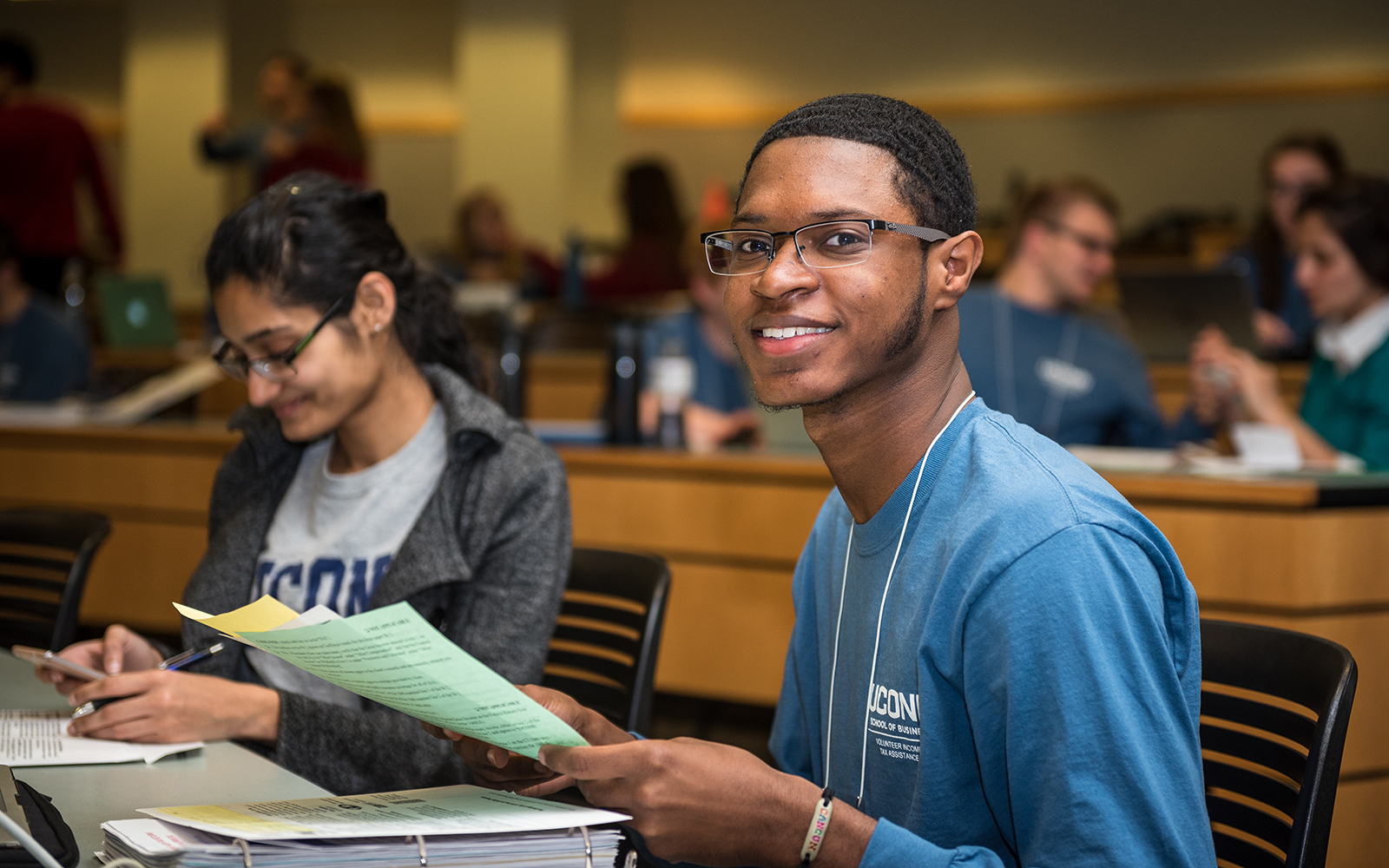
VITA Volunteers Eliminate Frustration, Expense of Taxes
Yvette Eley, a native of the United Kingdom, had to file U.S. taxes for the first time this year and just the thought of it was daunting.
Eley, a post-doctoral fellow in geosciences, turned to UConn’s Voluntary Income Tax Assistance Program (VITA), which helped her prepare her return for free. Adjunct faculty member Leanne Adams spearheads the program.
“Leanne and her team of dedicated volunteers made the process incredibly straightforward, and were so very kind, knowledgeable and professional throughout,” Eley said.
This year the students prepared almost 800 tax returns. This is a record for the program and a 44 percent increase over 2016. The program serves not only UConn but the general public as well, generally people who make $54,000 annually or less, persons with disabilities, and limited English speaking taxpayers. UConn’s program, however, also welcomes active or prior members of the military and their families, regardless of their financial circumstances.
“We take the pain and expense out of getting your taxes done,” Adams said. “However, what’s special about our program is how much the students care about helping people file their taxes. Some of these students have worked for ‘big name’ tax preparers in the past, and were shocked to learn how little those companies care about people. In many cases, our students are far better trained and welcome the opportunity to serve our community.”
The VITA program begins with five weeks of training, which prepares students to complete both the IRS Basic and Foreign Student/Scholar certifications. The VITA team then prepares tax returns three nights a week for the remaining eight weeks of tax season. After completing the two-credit course for preparers, students can also take a one-credit course the following year as a reviewer, supervising preparers and reviewing returns for final submission.
Paulo Dias ’17 enrolled in the course because he needed accounting credits for a CPA requirement. He said it was a great hands-on learning experience.
“Many clients I dealt with had no idea what a ‘tax’ was. Some of them were even scared of taxes,” Dias said. “By the end of their appointment most clients were happy and felt more comfortable with the whole process of filing taxes.”